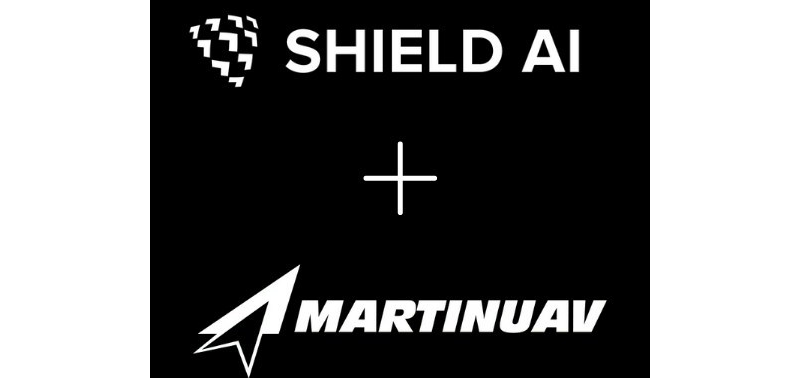, a fast-growing technology company that develops artificial intelligence and self-driving car technologies for the defense industry, today announced that it has signed a definitive agreement to acquire Martin UAV, an aerospace company best known for its industry-leading vertical takeoff and landing (VTOL) unmanned aircraft, V-BAT. Shield AI will integrate its combat-proven autonomy software, Hivemind, into the V-BAT, reinforcing Shield AI’s leadership position in defense-focused edge autonomy.
Shield AI’s Hivemind isan artificial intelligence and autonomy stack for a variety of applications across the defense landscape. It uses state-of-the-art path-planning, mapping, state-estimation, and computer vision algorithms, combined with reinforcement learning and simulations, to train unmanned systems to execute a variety of missions – from infantry clearance operations to breaching integrated air defense systems with unmanned aircraft.
The V-BAT, with its innovative, near-zero footprint VTOL and long-endurance capabilities, is unlike any UAS on the market. Propelled by a single, ducted, thrust-vectored fan, it takes off and lands in the style of a SpaceX rocket. It offers 11 hours of flight time, carries 25 lbs. of payload, and can hover and stare 10 times longer than any of its competitors. Its logistics footprint fits into the bed of a pickup truck or inside a Blackhawk helicopter, significantly reducing the total cost of capability. U.S. and international customers view the V-BAT as a flexible platform capable of performing Group 1 UAS to Group 4 UAS missions and beyond.
“Expeditionary. Intelligent. Collaborative. Expeditionary means capability on the edge, within control of the units who need it most. V-BAT is expeditionary today. Intelligent means aircraft that make their own decisions to execute commander’s intent to accomplish missions with or without reach-back. Collaborative means numerous V-BATs working together to provide access and area coverage with resilience in high-threat environments. The combination of Shield AI and Martin UAV and the integration of Hivemind® into the V-BAT represents the future of unmanned aircraft,”
said Brandon Tseng, Shield AI co-founder and former Navy SEAL.
“GPS and communications on the battlefield are no longer assured. A great aircraft without an AI to make intelligent decisions will be sidelined against China, Russia, and an increasing number of adversaries who are fielding electronic warfare and anti-air systems. Shield AI is one of the only companies that has operationalized advanced aircraft autonomy on the battlefield. Hivemind will make V-BAT the first and only Group 3 UAS built for sustained operations in denied environments,”
according to Ruben Martin, CEO Martin UAV.
“Our team extensively examined the VTOL aircraft market. The architecture of the V-BAT is special. It looks different because it is different – no product or technical architecture is better positioned to meet current and future Department of Defense needs. The engineers behind V-BAT solved extremely complex problems with innovative and first-principles approaches. By addressing these problems, they unlocked critical advantages over other VTOL aircraft,”
said Ryan Tseng, Shield AI CEO and co-founder.
Martin UAV’s V-BAT has over two years of persistent operational experience at sea in support of SOUTHCOM, the U.S. Marine Corps, and multiple international customers. In April of 2021, the US Navy selected the V-BAT over 13 prime OEM competitors in a highly competitive selection process, naming Martin UAV the sole winner of the Mi2 competition.
Last week, Shield AI announced its acquisition of Heron Systems, the winners of the DARPA AlphaDogfight Trials bolstering applications of Hivemind for Group 5 and next-generation fighter aircraft. The acquisition of Martin UAV complements a deliberate strategy to integrate Hivemind onto unmanned systems for defense and commercial applications. Shield AI is building a portfolio of systems via vertical integration and strategic partnerships centered around its Hivemind® AI and autonomy stack.
Source: Press Release

